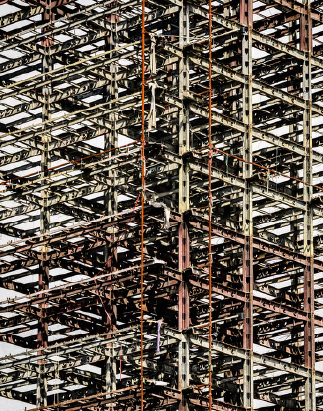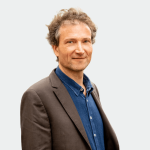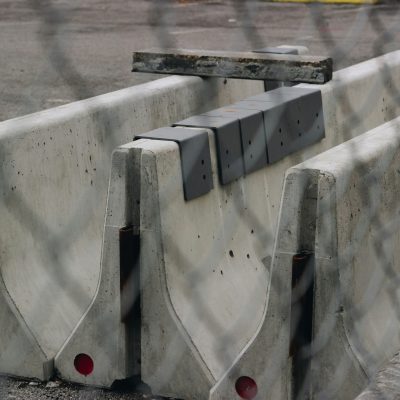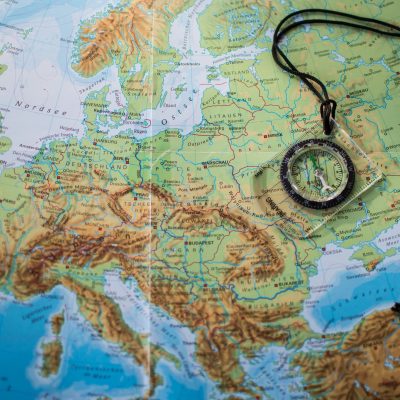The European Political Community’s own merits and limits

The first three EPC summits have shown the merits and limits of this new format. Primarily appreciated for the direct exchanges between leaders that its flexibility allows, it requires careful preparation by its organizers and greater ownership from its participants to guarantee its added value over time.
The failure of the European Political Community (EPC) summit in Granada on October 5 should not shide away the proven ability of this new format to periodically bring together leaders from across the continent to engage directly in strategic dialogue. Since its launch in Prague in October 2022, the EPC has attracted up to 47 heads of State or government from all over Europe, three times in one year. Taking stock of these summits gives an overview of what makes the EPC one-of-a-kind, what it cannot achieve overnight and what it can possibly deepen in order for the next summits to make the most out of it, starting with the forthcoming one in the UK.
The first merit of the EPC is precisely to reconnect with key players necessary for a strategic dialogue, such as the UK. The EPC enables the British PM to exchange views with his former EU partners away from the liabilities inherited from the Brexit, dealt with elsewhere and separately. London has understood this and, along with Paris, has shown to be the most involved in this new European format, which brings a breath of fresh air to relations damaged by a hard Brexit. The Labour Party, expected to return to power after next year’s general elections, fully supports the EPC and intends to maintain Britain’s diplomatic involvment.
Turkey stands as another power needed for high-level strategic dialogue with a continental scope. It has agreed to join the EPC, but has remained yet much in the background. After two last-minute cancellations in a row, ensuring Recep Tayyip Erdogan’s joins the next summit will be decisive in maintaining the credibility the EPC acquired when launched. This is a key issue for the host country, with the possible risk that the Turkish President takes advantage of the opportunity to condition his attendance. A more pronounced affirmation of his pro-Hamas stance in the Israeli-Palestinian conflict could, however, end up making his visit problematic or calling for explanations. More structurally, as with the UK, the EPC format gives Turkey an opportunity to deal with its European partners outside the EU framework, where difficult issues still need to be resolved (customs union, visas, asylum), and without questioning its stalled EU-candidacy.
With the exception of Turkey, the EPC has reassured candidate countries to the EU that it is not intended to replace their accession process. The doubts raised by the announcement of the French initiative have since been dispelled in all candidate countries, which find in the EPC an unprecedented framework in which to play on equal terms with EU member states, irrespective of the stage of their application. During a visit to Albania, a candidate country in the Western Balkans, on October 13, President Emmanuel Macron repositioned the EPC as “a political investment (…) on the road to reunification”, which already gives States engaged in that process a “full political place” and equal treatment with their counterparts.
I Containment of the continent
Beyond what it brings to each participant, the EPC is also to be appreciated as such. Above all, this new format signifies the end of any grey zone on the continent, which the Russian invasion of Ukraine rendered forever inconceivable. The summit held on June 1st in Moldova, an EU candidate country and former Soviet republic, has eloquently meant this. It also symbolised the purpose of a club created in reaction to Russian imperialism.
However, the EPC should not to be seen only as an extension of the West. Instead, it aims to frame Europe as a geopolitical entity in its own right in a multipolar world. Over the course of the first summits, the number of guests has risen and stabilized at 47 heads of State ot government, from Iceland to Azerbaijan. Any invitation outside Europe, including to Nato, the OSCE or to countries on the southern shore of the Mediterranean, that the British Foreign Office could consider, would distort this European gathering conceived primarily according to the geographical bounds of the whole continent. The risk of a new American isolationism following Donald Trump’s envisaged return to power in Washington makes this conception of the EPC even more relevant.
The participation of the five heads of EU institutions, including, since the 2nd summit, the President of the European Parliament and the EU High Representative for Foreign Policy, implicitly recognises the outstanding place taken today by European integration on this continent, and of the geopolitical direction it is seeking. But the EU, even when enlarged to over 30 countries, cannot cover the entire continent. From a pure European integration perspective, the EPC draws the last of the four concentric circles envisaged by the group of French and German experts in their report on EU institutional reforms.
From a geopolitical point of view, the EPC is a timely step towards bridging the widening gap in a world that is dangerously “more multipolar and less multilateral”, as summed up by the head of European diplomacy, Josep Borrell. The EPC embodies a European pole, but is also meant to express the way in which its participants string to multilateralism, understood here as common respect for public international law. Multilateralism was one of the three themes of the Granada summit. Although it does not claim to represent a community of shared European values, as initially foreseen2, and despite it brings together leaders of political regimes across the continent as different as Norway and Turkey, the EPC leads nonetheless its participants to an implicit non-aggression pact. This is what its ambitious name of Political Community calls for. This is already meant by the exclusion of Russia and Belarus from the very beginning. Born in reaction to Russia’s military invasion of the Ukraine and the return of war to the continent, the new Community aims to prevent such further aggression on the continent for the sake of its security by establishing a strategic dialogue and by supporting pan-European cooperation projects.
II An interpersonal organization
The EPC enables close dialogue between leaders at the highest level. Moving from plenary sessions to thematic group sessions, with ample room left for bilateral meetings, summits promote a culture of direct, unfiltered dialogue between heads of State or/ and government. The informal setting, in a secluded spot or on the heights of a city, the attendance limited to very small delegations, their physical presence and the absence of final declarations are designed to create conditions conducive to a climate of trust between peers. In this sense, the EPC is not so much an intergovernmental organization but rather an interpersonal one, should it even constitute a genuine organization in the first place. This is how the notion of “strategic intimacy” assigned to it by its creator, Emmanuel Macron, ought to be understood and could also explain naming it a Community. His initiative falls in the footsteps of his distant predecessor Valéry Giscard d’Estaing, who set up the G5, now G7, and the European Council to enable leaders to meet one another, just by themselves – a format suited for a French President. Thus the EPC fills a vaccum that the Council of Europe nor any other European organizations can replace, given their very institutional nature and the sophistication of their highly regulated operating methods.
This original feature of the EPC is also what marks its most elusive limit. On the one hand, “strategic intimacy” requires a cosy diplomatic atmosphere that is more difficult to create among 47 leaders than between just 5 or 9. A Community also cannot be decreed from scratch. It needs time to form and hold its own spirit, through regular exchanges between peers. It requires a series of successive summits to establish itself and bring about a change in the approach to the disputes that are discussed. The EPC could not miraculously resolve the long-standing and serious regional tensions between Serbia and Kosovo, neither between Armenia and Azerbaijan, which are already the subject of other patient initiatives. However, the resumption of violence in these regions, and the threat posed by Baku to Armenian territory, betray a setback in these processes, which the EPC has yet been unable to prevent.
Alongwith attempts to foster candid dialogue among leaders, the degree of trust between European countries is also measured by their commitment to cooperation projects, to which the EPC can give political impetus. Withtout its own resources, budget and monitoring, the new format cannot directly support the completion of projects such as ones in the fields of cybersecurity, roaming and youth mobility (extension of DiscoverEU). But it provides the political backing that projects of this pan-European scope require to overcome the bureaucratic blocks and financial deadlocks to which they are inevitably subject. The added value of the EPC will also be assessed over time by its push in favour of such kinds of deliveries, which affect everyday life.
Establishing a culture of dialogue and stimulating concrete cooperation projects require prior investment on the part of the host country, upon which the bulk of the summit practically rests. By deliberately remaining within a purely informal framework, the EPC is subject to the host country’s degree of preparation and ownership by its diplomatic corpse. Upstream interactions with the previous and subsequent host countries, and close contacts with the sherpas of the various participants, can prevent the summit from becoming the subject of mood swings among its protagonists. The last-minute refusal of the Turkish and Azerbaijani heads of State to come to Granada, the on-site refusal of the President of Kosovo to meet her Serbian counterpart, the tensions between London and Madrid over the summit’s agenda and the sudden cancellation of the final press conference all gave the impression of a summit where informality gave way to improvisation. The challenge now for the EPC is to regain the level of attendance and quality of dialogue that define it.
III Putting the consolidation phase on track
With the British summit awaited for next semester, the fourth in a series, the EPC will enter its consolidation phase after the launching phase. A number of points need to be settled before this next stage can be envisaged. Institutionalizing the EPC would be premature, and would even be a deterrent for countries such as Germany, which are not yet convinced nor bothered by this format. But, even without any kind of institutionalisation, there is still room for improvement in the EPC’s own proceeding :
- The established tradition of alternating between EU and non-EU countries does not appear to be called into question at this stage. It does, however, insidiously create a difference in approach between EU countries, which are obliged to host a summit as part of their European Presidency, and non-EU countries, which organize it on an ad hoc voluntary base. The latter have already expressed interest in hosting the EPC (Switzerland, Norway). There is a risk that the alternation becomes one between mandatory and voluntary summits. If an EU State does not wish to add such a summit to its already burdensome EU Council Presidency, it should be able to associate itself with or cede its place to another Member State in the trio formed for rotating EU Council presidencies. As a last resort, the designation of a host country within the EU could be decided by the European Council, and revert by default to the Presidency of the European Council, in the absence of a volunteer.
- In both cases, it’s vital that the host country takes full ownership of the issues at stake at the summit it convenes. This calls for close collaboration between the three countries selected in the order of summit organization (previous, present and next), the frequent involvement of sherpas and the support of EU institutions (Presidency of the European Council and European External Action Service) in framing and ensuring the continuity of discussions. Physically bringing together the continent’s top leaders is a capital asset not to be squandered.
- Relying too much on the leadership of the host country alone also presents the danger of allowing too much latitude on the summit agenda for domestic political purposes. This is the risk of the British summit, which Prime Minister Rishi Sunak wants to devote almost exclusively to the issue of migration and border security, in view of the national legislative elections his party will be facing the same year.
- In addition to the host countries, the success of the summit depends on the genuine involvement of the leaders and of their own preparation. Their participation in the summit could be preceded, where this is not already the case, by exchanges with civil society and parliamentary debate with the relevant committee, to which they could also report after the summit, while respecting the confidentiality of discussions. National parliaments, and in particular their foreign affairs committees and that of the European Parliament, could take initiatives of their own to initiate a dialogue between their formations at the scale of the EPC.
- The frequency of biannual summits will undoubtedly be difficult to maintain in the long run. However, it still seems necessary in view of the serious context of conflict around and within the continent (Ukraine, Nagorno-Karabakh, Holy Land) and of the tension raised by the Israeli-Palestinian conflict within many societies on the continent, particularly in the West. Spacing out the summits today would send out a misleading signal of détente, which the heavy international context in no way justifies. It would betray war fatigue in Ukraine, to the benefit of President Putin. The success of the EPC depends not only on its ability to bring together leaders from across Europe, but also on its ability to bring them regularly at this level over time.
- If a physical biannual summit proves too cumbersome to hold over the years, an intermediate solution could be to hold a ministerial meeting at foreign affairs level to follow up the previous summit and prepare for the next one. In addition, such an annual ministerial meeting could also be welcomed for the operational follow-up of cooperation projects between the leaders’ summits (at transport, telecommunications, education ministers levels). The G7 and G20, to which the EPC is often compared, have developed several regular ministerial formats.
- The EPC’s role in mediating sub-European tensions between its members deserves to be made more systematic. Leaders could designate a special envoy, mandate a host country, or even set up an ad hoc contact group to monitor their mediation and coordinate it with other initiatives. If a light institution were to support the EPC in the long run, it would be in this field.
- Finally, France and the United Kingdom, with their same-sized international reach, stand out as the two countries that have taken the finest ownership of the EPC since its launch. For its consolidation, they have a spurring role to play, which could eventually attract Germany. Today, Paris and London are the guarantors of the EPC’s triple mission of strategic dialogue, regional mediation and support for continental cooperation. Both have comparable diplomatic stature, complementary approaches to the EPC and represent the duality of EU and non-EU membership. In this respect, they could lend their joint support to the organization, follow-up and memory of the summits. And start by exchanging views bilaterally on their expectations of a new format that still holds much potential.




